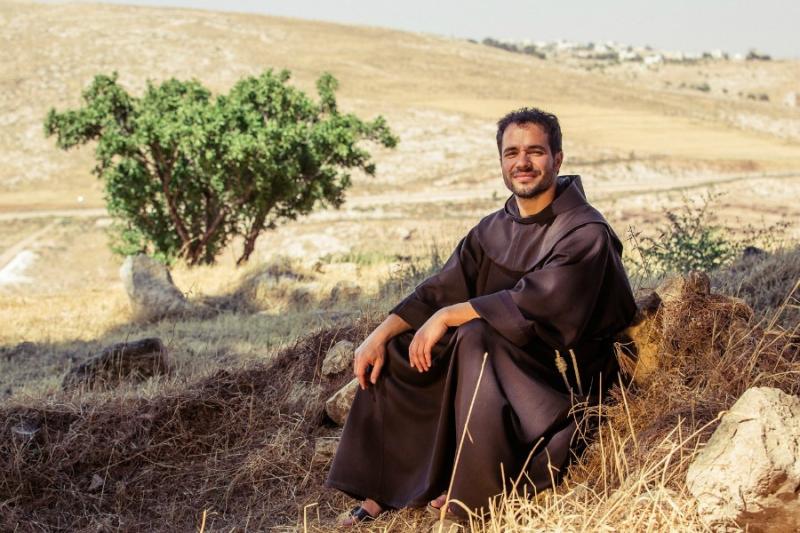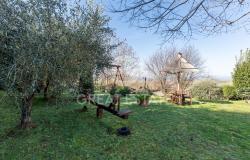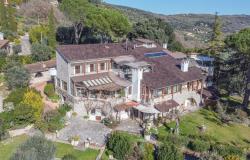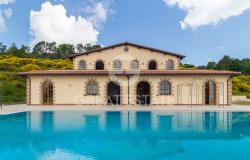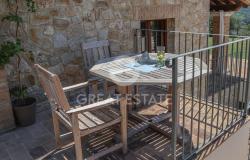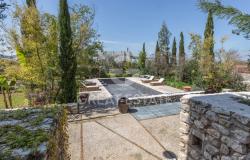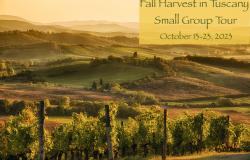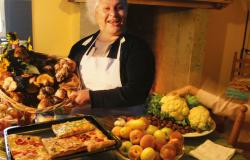He is from the Porziuncola in Assisi – the original friary founded by St Francis of Assisi – and his extraordinary singing voice has recently made history – twice. Alessandro Brustenghi, 34, is both the first Friar to receive a major record deal and is the first man from a religious order to top the UK classical chart as a solo artist.
In his vocational life, he works in the Basilica Santa Maria degli Angeli, welcoming visitors to Assisi and as a carpenter, and formerly was known only locally for singing in regional concerts. All changed earlier this year when Mike Hedges, the producer of rock band U2, heard his dulcet tenor tones. A record contract with Decca ensued and with it, the chance to record at the Beatles’ legendary Abbey Road Studios in London. It was the first time that the Friar had flown out of Italy. In the wake of his debut album, ‘Voice From Assisi’ charting at number one, British radio stations began reporting calls from listeners ‘moved to tears’ by his versions of sacred songs such as Pater Noster and Panis Angelicus. Due to popular demand, he visited the UK again pre-Christmas, on a mini publicity tour. In accordance with Friar Alessandro’s personal vow of poverty, all recording proceeds go directly to charity.

Welcome to London, Friar Alessandro - and congratulations on having topped the UK classical charts. How does that feel?
‘I say ‘thanks to God!’ It is his work, and I am much surprised! I’m very happy that this message of sacred music is able to reach people. On the computer in the Friary, I have been overwhelmed by the warm reaction on YouTube - but I’m just an instrument; a channel for the grace of God.’
When you were approached with the recording contract, did you think any of this would happen?
‘ To think that Decca even wanted to make a deal I thought very funny! When I understood it more, it became a big thing, a conflict, even. I prayed for an answer and talked about it with my brothers at the friary. I was advised and began to understand it as a mission. Music is like a tool for communion with others.’
Was your upbringing in Perugia very music-filled? Or was it particularly religious?
 ‘My parents were Catholic but not very involved. My mother took care of the house and my father worked for the Government. He loved music and used to play clarinet in the village band. My life was changed aged nine, the first time I heard a recording of Bach – it touched me really deeply. First, I wanted to become a drummer but instead studied organ, composition and later singing, at the music conservatory in Perugia. Here I was instructed in the ‘bel canto’ discipline, to sing ‘on the air’, relying on quality over decibel power. I believe that to sing is to bring to other people, beauty. ‘
‘My parents were Catholic but not very involved. My mother took care of the house and my father worked for the Government. He loved music and used to play clarinet in the village band. My life was changed aged nine, the first time I heard a recording of Bach – it touched me really deeply. First, I wanted to become a drummer but instead studied organ, composition and later singing, at the music conservatory in Perugia. Here I was instructed in the ‘bel canto’ discipline, to sing ‘on the air’, relying on quality over decibel power. I believe that to sing is to bring to other people, beauty. ‘
Before you entered the monastic life, did you enjoy modern music?
‘Before and after I joined the Order… I still enjoy Michael Jackson! I discovered him the same time as Bach so they are my two masters of music. I find Michael’s music interesting; a new concept in pop. He discovered new ways to express and was able to express the feeling of different people. His music’s a good balance between melody and harmony, the old and the new. I like to listen to ‘Dangerous’ and study all the different styles. I find ‘Invincible,’ ‘Threatened’ and ‘Unbreakable’ interesting tracks. I felt sad when he died. I was expecting another album.’
Do you think there is a direct relation between your love of music and your vocation?
 ‘Well, friars are used to singing in praise three times a day! Singing at mass is for us, an expression of joy, and meeting with the divine. I feel that God showed me music and singing as a prelude to religious life. Finding my voice was like climbing a mountain, a miracle of training and a miracle of God. I had a tiny voice and my teachers told me I would not pass my singing exam. Finally after hours and hours of breath-work and study, I passed the exam with distinction. I still had a big crisis of faith – why, I don’t know – in 2001 – and spent the next years living like a hermit, in solitude. By 2005, I was ready to re-enter the friary, all the stronger and able to balance music and my vocation. I had discovered that the music was inside of me – another spiritual connection. God’s gift was in my heart. The feelings I had I could channel to communicate, to sing whatever is beautiful.’
‘Well, friars are used to singing in praise three times a day! Singing at mass is for us, an expression of joy, and meeting with the divine. I feel that God showed me music and singing as a prelude to religious life. Finding my voice was like climbing a mountain, a miracle of training and a miracle of God. I had a tiny voice and my teachers told me I would not pass my singing exam. Finally after hours and hours of breath-work and study, I passed the exam with distinction. I still had a big crisis of faith – why, I don’t know – in 2001 – and spent the next years living like a hermit, in solitude. By 2005, I was ready to re-enter the friary, all the stronger and able to balance music and my vocation. I had discovered that the music was inside of me – another spiritual connection. God’s gift was in my heart. The feelings I had I could channel to communicate, to sing whatever is beautiful.’
How did you receive your spiritual calling?
‘Before my conversion, I had an idea of God but believed more in philosophy – and felt very anguished. At 16 I felt turbulence inside like I wanted to taste all life’s experience, even the danger. I prayed that God would please give me a sign of His presence. I went to be alone in a wood, lay down, and suddenly received a feeling of the greatest peace and communion with all creation. I realised that I wanted to love all people in the same way. That was what was real for me. Previously, I had wanted to become a musician, have a family of my own. It was an incredible experience. I watched Zeffirelli’s film on St Francis and it took me about three years of thinking about it, but I knew that I wanted to live like this man – in communion with people, to do something good for others with joy.’

Were you also inspired to join the Order of St Francis because of his association with music and dance?
‘When I joined the monastery, it was the opposite. I decided to leave music but found I was wrong to do so. My superiors told me I should continue with music, that it ‘s a gift from God, that music was part of me. I learnt we have to sacrifice our vices, not the beautiful things such as art, poetry, music, dancing.
How did it feel, to make your first recording at the famous Abbey Road Studios – and what’s your favourite track on the album?
‘It was beautiful. I was thinking of all the great music recorded there… music able to move the hearts of people all over the world. I was thinking, ‘who am I, to be here?’ A journey of providence took me there. My favourite track’s ‘Sancta Maria’ – from ‘Cavalleria Rusticana’, the first opera I ever watched on TV that made me cry. Every track has meaning for me, from ‘Fratello Sole, Sorella Luna’ and ‘Ave Maria’ to ‘Tantum Ergo Sacramentum.’’
How do you balance the spiritual with the demands that singing now brings?
‘It’s about finding the right balance. I feel that God has chosen this for me. Going round the world to publicise this project is a way to realise my spiritual vocation. In the spirit of our mission, a friar travels with me and we do not stay in hotels, we stay in a friary. It is not about searching for fame, in fact I wish for my daily life to remain the same. Should my voice become famous I may be called round the world for concerts, but I will not go easily. Honestly, I prefer to stay in Assisi. I want to say yes to everybody but it’s about following my heart, my mind and my spiritual life. Fraternity is always my priority. When I receive the requests, I will see.’
What will happen should you become as big as Pavarotti?
‘I don’t think so! (laughs). He’s the biggest tenor ever, with an incredible quality, just unique. It is not possible to have another Pavarotti!’
Friar Alessandro, have you a Christmas message for our readers?
‘Let us remember that Christmas is about the holy birth. When Jesus was born, the angels were singing. We are called to sing to Jesus, and to discover Him in the presence of our neighbours. Sing to him or to her and be happy in a communion of beauty and joy, through music.’
Buy Friar Alessandro's "Voice from Assisi" here.
Buy Friar Alessandro's "Voice of Joy" here.
All proceeds go directly to the Order of Friars Minor for its charitable work.
